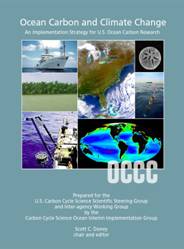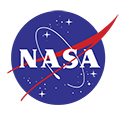Ocean Carbon and Biogeochemistry (OCB)

Introduction
The Ocean Carbon & Biogeochemistry (OCB) Program was established in 2006 as one of the major activities of the U.S. Carbon Cycle Science Program. OCB is a network of scientists who work across disciplines to understand the ocean's role in the global carbon cycle and the response of marine ecosystems and biogeochemical cycles to environmental change. OCB’s overarching goal is to explore the ocean’s role in the global carbon cycle and the response of marine ecosystems to environmental changes of the past (paleo), present, and future (prediction). Specific research priorities include:
- Climate- and human-driven changes in ocean chemistry (e.g., acidification, deoxygenation, nutrient loading, etc.) and associated impacts on marine ecosystems
- Ocean carbon uptake and storage, including processes from the air-sea interface to the deep ocean
- Marine organism-mediated carbon cycling and export via the biological pump
- Benthic-pelagic coupling and sedimentary feedbacks on marine biogeochemistry and food webs
- Carbon cycling and associated biogeochemical fluxes and exchanges along the aquatic continuum
- Marine organism response to environmental change, including molecular, physiological, ecological, and evolutionary processes
The OCB Project Office, which is supported by NSF’s Chemical Oceanography and Biological Oceanography Programs and NASA’s Ocean Biology & Biogeochemistry Program, brings together scientific disciplines and cultivates partnerships with complementary US and international programs to address high-priority research questions about marine ecosystems and biogeochemistry. OCB plays multiple important support roles for its network:
- Organizes and co-sponsors workshops, short courses, working groups and synthesis activities on emerging research issues
- Serves as a central information hub (websites, email list, newsletter, social media) to broadcast scientific news, opportunities, and research highlights
- Engages with relevant national and international science planning initiatives
- Develops education and outreach activities and products with the goal of promoting ocean carbon science to broader audiences
- Trains the next generation of ocean scientists and engages early career scientists in OCB activities (travel support, networking, mentoring)
Learn more about OCB's impact over the last two decades.
Science Plan and Implementation Strategy

Ocean Carbon and Climate Change: An Implementation Strategy for U.S. Ocean Carbon Research (Doney et al., 2004) provides the scientific rationale for a coordinated ocean surface and space observations, experimental study, numerical modeling, and data assimilation effort for the coastal ocean, ocean basins and atmospheric components of the carbon cycle over North America and adjacent coastal ocean and ocean basins. The report presents an integrated multi-agency, interdisciplinary science and implementation strategy for oceanic monitoring and research aimed at determining how much carbon dioxide is actively absorbed by the coastal ocean waters and how climate change will affect the future behavior of this carbon reservoir. The strategy consists of several coordinated and integrated elements on global ocean carbon observing networks, multidisciplinary process studies, data fusion and integration, synthesis and numerical modeling, and new technological development. While the program encompasses a wide breadth of ocean biology, chemistry, and physical research, the program promotes linkages and interactions with related ongoing oceanographic, climatic, and carbon cycle programs to address the full range of scientific elements relevant to marine carbon dynamics and the climate change (e.g., Surface Ocean Lower Atmosphere Study (SOLAS), Integrated Marine Biosphere Research (IMBER), Climate and Ocean - Variability, Predictability, and Change (CLIVAR), Global Ocean Ecosystems Dynamics (GLOBEC, completed), Global Carbon Project (GCP), and others).
Ocean Carbon and Biogeochemistry Scientific Steering Committee (OCB SSC)
The Ocean Carbon and Biogeochemisty Scientific Steering Committee (OCB SSC) provides critical leadership to the OCB community by helping to identify research priorities and promote, plan, and coordinate collaborative, multidisciplinary research opportunities in ocean biogeochemistry. See the OCB SSC Charge and Terms of Reference.




